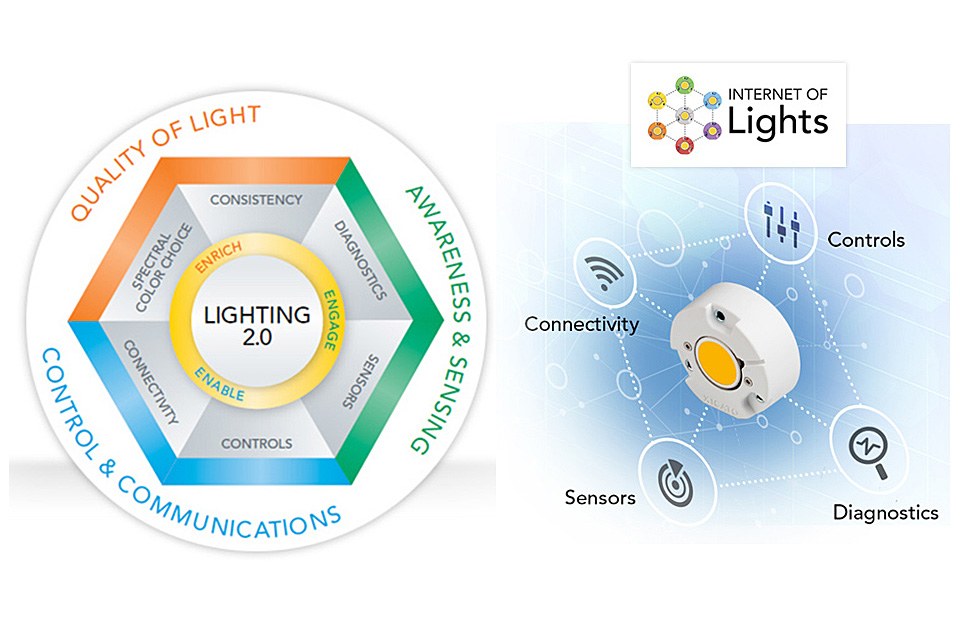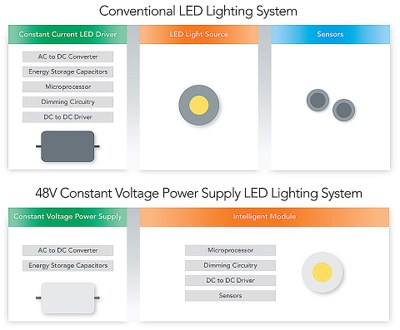Not Just Light Generation - Xicato Calls It "Internet of Lights" or Lighting 2.0
Xicato, in cooperation with Echelon will demonstrate a new integrated controls approach. What Xicato understnds when saying "Internet of Lights" is already explained shortly on their website. If you are interested in topic like this, don't miss LpR 43.
Lighting 2.0: A New Paradigm
Lighting 2.0 is, quite simply, lighting that communicates and interacts with both the environment around it, and the users that it serves. With communications and sensors, lighting becomes a platform that can be used to enrich, engage and enable experiences and environments. Lighting 2.0 utilizes and implements the digital nature of LED technology and innovation to create new, better lighting solutions.
The Internet of Lights
Most connected lighting platforms in the Lighting 2.0 model consist of “add-ons” to existing lighting systems thereby negating the benefits of fit for purpose design and the reliability, control and design options that can be achieved through integration.
Xicato believes that integrating communications, control, sensors, software and a light source into a single module will enable a “community” of lights in and across spaces that can share information and inputs to respond to enduser desires, environmental issues and can execute business rules to enhance commerce.
The union of software and hardware in a single package provides the greatest design freedom both aesthetically and from a system perspective.
XIM: The Intelligent Module
XIM is Xicato’s Intelligent Module which integrates communications, controls, sensors, software and a light source into one powerful light engine. Bringing the critical electronics together makes the system more reliable, easier to integrate and provides a foundation for exploring new business models based on lighting.
Shrinking Corrected Cold Phosphor Technology into a significantly smaller footprint, XIM retains all the benefits of the patented phosphor cooling technology and quality of light and created space into which chips and electronics can be incorporated. With virtually the same footprint as the first generation XSM, the new XIM causes us to reconsider what a light source can be.




